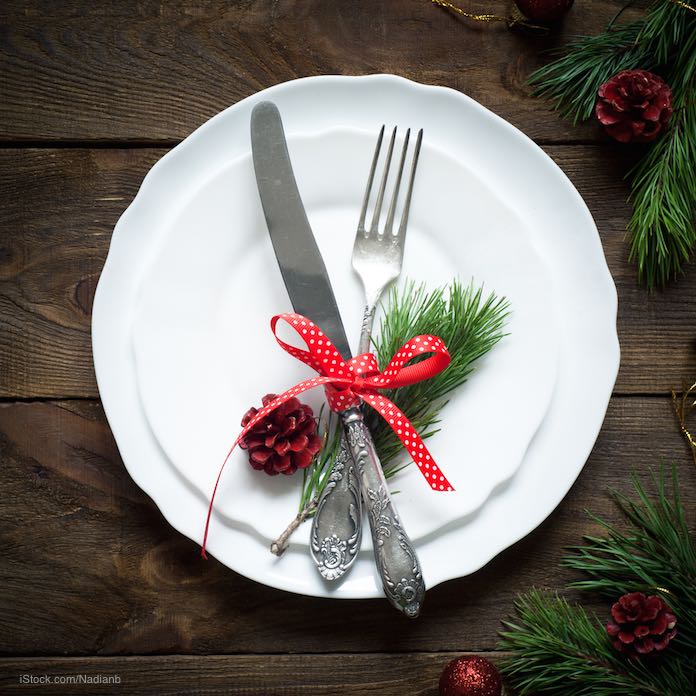The holidays are upon us. Many people are cooking more at home, and with that in mind, the CDC is offering food safety tips for the holidays to make sure you don’t end up in the emergency room with food poisoning.

First, wash your hands before you prepare food and after you touch raw meat, raw eggs, or unwashed vegetables. That last one is new – but good to know, since raw vegetables have been linked to many foodborne illness outbreaks over the years.
Follow good food safety practices and cook food thoroughly. Always use a food thermometer to check the final internal temperature of meats, poultry, egg dishes, and seafood. And remember that roasts, chops, steaks, and fresh ham should stand for 3 minutes after they are removed from the oven or grill.
The “danger zone” is something everyone should know about. Between the temperatures of 40°F to 140°F, bacteria grow at a rapid pace. To prevent this catastrophe, keep hot food hot and cold food cold. Refrigerate or freeze any perishable foods within 2 hours. Make sure the temperature in your fridge is set at 40°F or below, and that your freezer is below 0°F.
Never make a recipe that uses raw eggs and isn’t cooked. Eggs harbor Salmonella bacteria and can make you very sick. Pasteurized eggs can be found at practically any supermarket. This time of year, it’s especially important to make eggnog, hollandaise sauce, Caesar dressing, and tiramisu with pasteurized eggs.
Do not eat raw cookie dough or batter. Eggs aren’t the only risk in these products; flour can contain pathogenic bacteria, as the E. coli outbreak linked to General Mills flour last year proves. Don’t let children taste raw dough or batter or play with dough at home or in restaurants for food safety reasons.
Keep foods properly separated to avoid cross-contamination. Keep meat, poultry, seafood, and eggs away from foods that are to be eaten raw. And don’t store these items on shelves above produce, because juices can drip or leak onto other foods.
To thaw a turkey, let it stand in the fridge for a few days, according to the size of the bird. You can also thaw it in a sink of cold water that is changed every 30 minutes. Or you can cook your turkey from the frozen state.
Finally, if a pregnant woman is coming to your house for a holiday party, make sure you don’t see any raw or unpasteurized milk or cider. Soft cheese and deli meats can also be problematic. These women should also avoid refrigerated smoked seafood, and any alcohol-spiked punches or eggnog.
Keep your family and guests safe and have a wonderful holiday!




